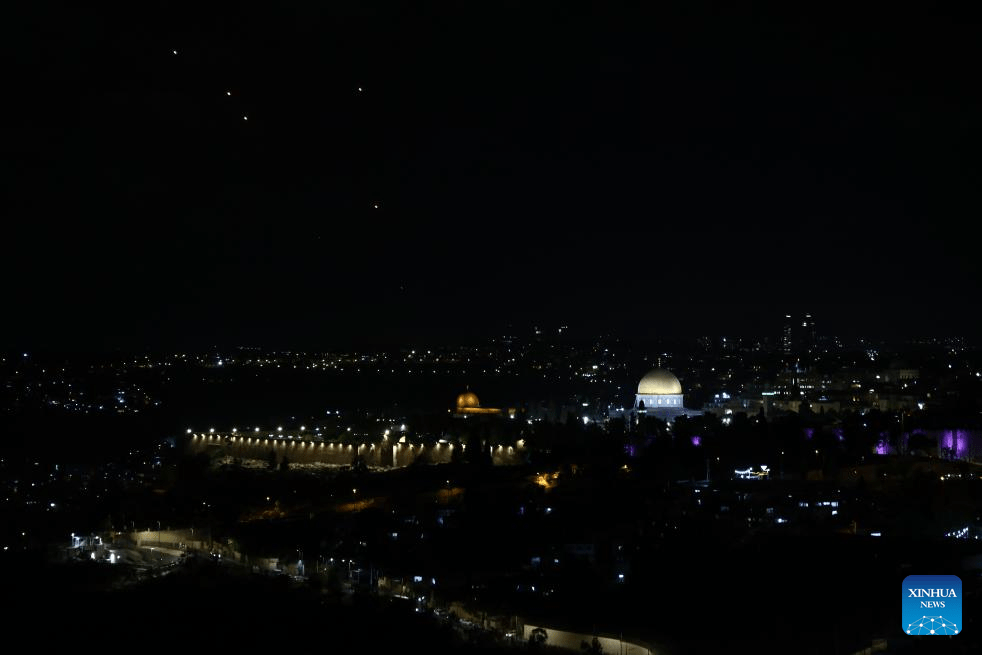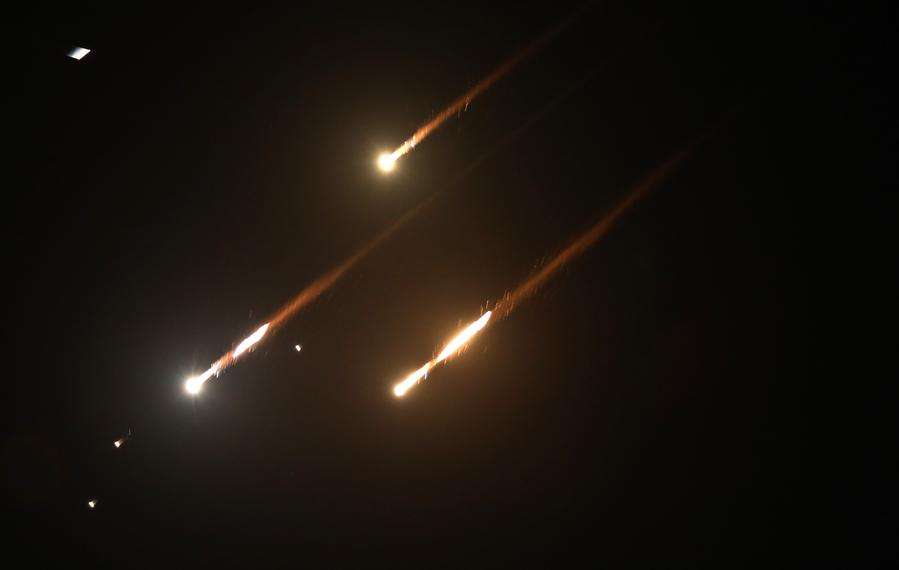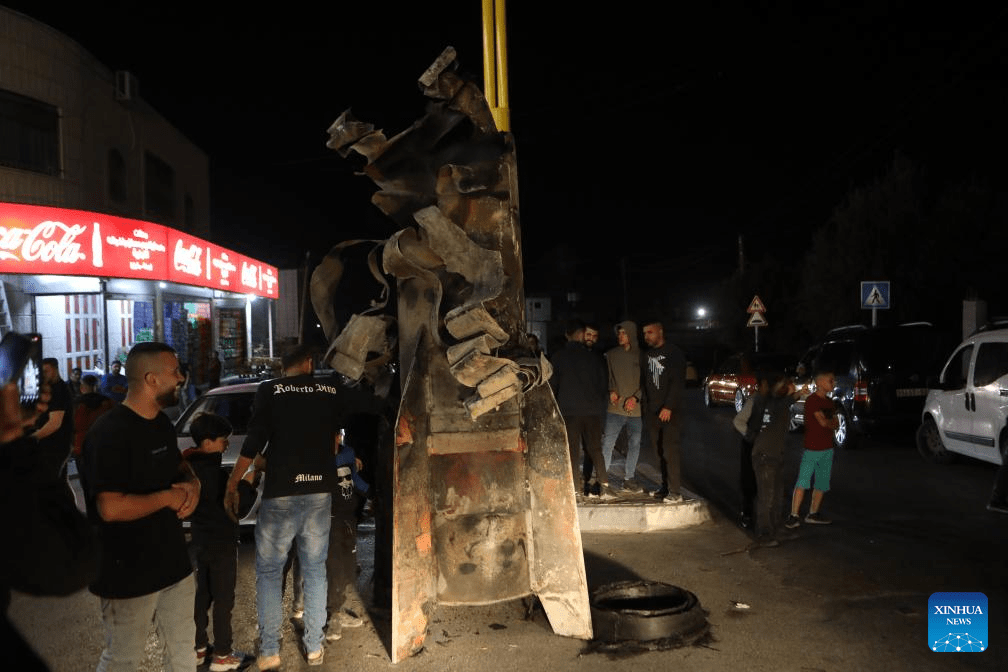JERUSALEM/TEHRAN, Oct. 2 - Iran fired about 180 rockets at Israel on Tuesday night after Hezbollah leader Hassan Nasrallah was killed in an ongoing Israeli military offensive in Lebanon. Salvos of rockets descended on Israel, setting off sirens and sending residents into hiding. Loud explosions were heard in Jerusalem as Israeli air defence systems successfully intercepted some Iranian missiles, as witnessed by Xinhua correspondents.
A Palestinian has been killed by shrapnel in the occupied West Bank, Israel's state-run Kan TV reported. Israeli emergency service Magen David Adom said two people in Tel Aviv suffered minor injuries. No immediate casualties were reported in Israel.
Traffic on Jaffa Road, Jerusalem's main street, returned to normal shortly after the attacks, although Xinhua news agency reported that there remained a stronger police presence than usual.
Israeli Prime Minister Benjamin Netanyahu promised that Israel would respond to the Iranian missile attack. "Whoever attacks us - we'll attack them," Netanyahu said at a security cabinet meeting focused on possible counterattacks and a ground military campaign in Lebanon.
Iran's Islamic Revolutionary Guards Corps (IRGC) has said that if Israel attacks Iran, it will face "crushing and devastating" attacks.
UN Secretary-General Antonio Guterres in a statement published after the attack on the social network X, condemned "the widening of the Middle East conflict, with escalation after escalation".
"This has to stop. We definitely need a ceasefire," He wrote.
Long awaited attacks
This is the second round of Iranian missiles fired at Israel. The first round in April was the first ever direct Iranian strike on Israel, carried out in retaliation for an Israeli attack on the Iranian consulate in Damascus that killed seven IRGC officers.
The previous round of Iranian missiles was intercepted with the help of the US military and other regional countries. Israel responded with air strikes in Iran, but avoided a wider escalation.
The latest Iranian attacks follow high-profile assassinations of anti-Israeli figures with close ties to Iran.
Iran has vowed to retaliate after Hamas leader Ismail Haniyeh was assassinated in Tehran in late July while attending the swearing-in ceremony of Iranian President Masoud Pezeskian.
On 27 September, Iranian-backed Hezbollah leader Hassan Nasrallah was killed in Israeli airstrikes. In response, Iran's Supreme Leader Ali Khamenei vowed revenge for Nasrallah's death.

The two rounds of attacks did not cause any major damage to Israeli territory, although both sides assess their impact differently.
In a statement published on the official Sepah News website, the IRGC claimed that 90 % missiles fired on Tuesday successfully hit their targets, including several air and radar bases and "conspiracy centers" involved in planning assassinations of leaders such as Haniyeh and Nasrallah.
Israeli military spokesman Daniel Hagari said several rockets had landed in central and southern Israel and "quite a few" had been intercepted by air defence systems.
Expanded Israeli war front
Following Tuesday's rocket attacks, the Israeli military vowed to "carry out attacks throughout the Middle East tonight" in retaliation.
Israel has been at war with Hamas in the Gaza Strip for a year. In the waters off the Yemeni coast, a group of Houthis has been attacking ships with links to Israel.
Following frequent firefights with Hezbollah on the Lebanese border since the outbreak of the Israeli-Palestinian conflict last October, Israel has escalated intensive airstrikes on Hezbollah strongholds and other targets since 23 September.

In addition to the explosions of communications equipment that have injured many Hezbollah members - something Israel has not openly claimed - the country is considering a ground offensive after weeks of heavy bombing in Lebanon.
The latest confrontation between Israel and Iran has raised fears of a further expansion of the Israeli war front and a wider regional war, while the UN and many world leaders are pushing for a ceasefire in Gaza and Lebanon and de-escalation in the Middle East.
However, both Israel and Iran have not shown much willingness to back down.
"Iran has made a big mistake tonight, and it will pay for it," Netanyahu said during Tuesday's security cabinet meeting.
Iranian President Masoud Pezeshkan declared after the attacks that his country was not a warmonger, but "will stand firm against any threat".
Xinhua/ gnews - RoZ
PHOTO - Xinhua/ Ayman Nobani, Xinhua/ Mamoun Wazwaz



